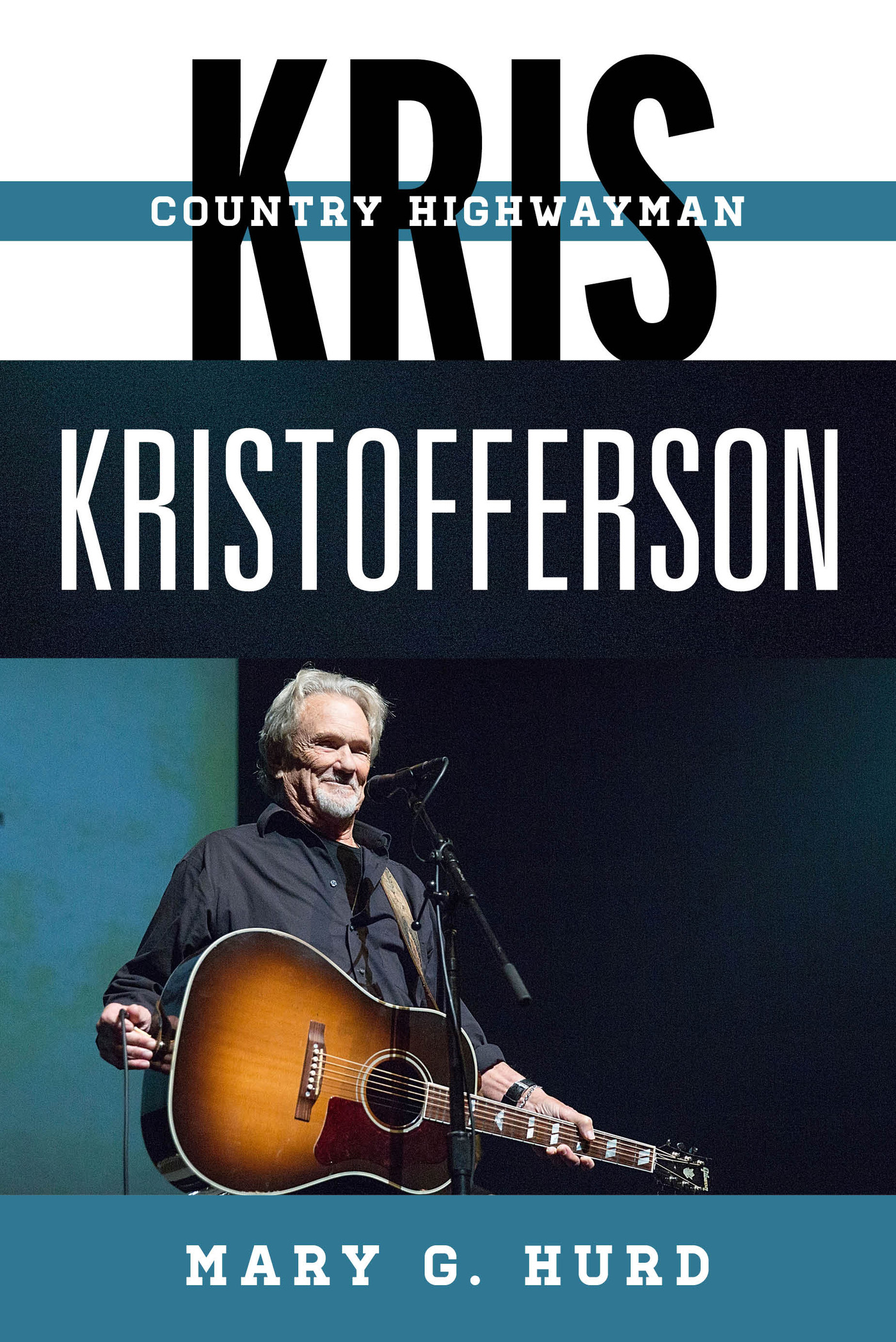Kris Kristofferson
Tempo
A Rowman & Littlefield Music Series on Rock, Pop, and Culture
Series Editor: Scott Calhoun
Tempo: A Rowman & Littlefield Music Series on Rock, Pop, and Culture offers titles that explore rock and popular music through the lens of social and cultural history, revealing the dynamic relationship between musicians, music, and their milieu. Like other major art forms, rock and pop music comment on their cultural, political, and even economic situation, reflecting the technological advances, psychological concerns, religious feelings, and artistic trends of their times. Contributions to the Tempo series are the ideal introduction to major pop and rock artists and genres.
Bob Dylan: American Troubadour, by Donald Brown
Bon Jovi: Americas Ultimate Band, by Margaret Olson
British Invasion: The Crosscurrents of Musical Influence, by Simon Philo
Bruce Springsteen: American Poet and Prophet, by Donald L. Deardorff II
The Clash: The Only Band That Mattered, by Sean Egan
Kris Kristofferson: Country Highwayman, by Mary G. Hurd
Patti Smith: Americas Punk Rock Rhapsodist, by Eric Wendell
Paul Simon: An American Tune, by Cornel Bonca
Ska: The Rhythm of Liberation, by Heather Augustyn
Country Highwayman
Mary G. Hurd
ROWMAN & LITTLEFIELD
Lanham Boulder New York London
Published by Rowman & Littlefield
A wholly owned subsidiary of The Rowman & Littlefield Publishing Group, Inc.
4501 Forbes Boulevard, Suite 200, Lanham, Maryland 20706
www.rowman.com
Unit A, Whitacre Mews, 26-34 Stannary Street, London SE11 4AB
Copyright 2015 by Mary G. Hurd
All rights reserved. No part of this book may be reproduced in any form or by any electronic or mechanical means, including information storage and retrieval systems, without written permission from the publisher, except by a reviewer who may quote passages in a review.
British Library Cataloguing in Publication Information Available
Library of Congress Cataloging-in-Publication Data
Hurd, Mary G.
Kris Kristofferson : Country Highwayman / Mary G. Hurd.
pages cm (Tempo : a Rowman & Littlefield music series on rock, pop, and culture)
Includes bibliographical references.
ISBN 978-0-8108-8820-3 (cloth : alk. paper) ISBN 978-0-8108-8821-0 (ebook)
1. Kristofferson, Kris. 2. ComposersUnited StatesBiography. 3. SingersUnited StatesBiography. I. Title.
ML420.K93H87 2015
782.421642092dc23 [B]
2014048511
 TM The paper used in this publication meets the minimum requirements of American National Standard for Information Sciences Permanence of Paper for Printed Library Materials, ANSI/NISO Z39.48-1992.
TM The paper used in this publication meets the minimum requirements of American National Standard for Information Sciences Permanence of Paper for Printed Library Materials, ANSI/NISO Z39.48-1992.
Printed in the United States of America
For my husband Charles;
daughters Ellen, Donna, and Sarah;
son-in-law Cliff;
grandchildren Merritt, Emily, and Forrest;
and Fred, Gracie, and Charlie
Series Editors Foreword
Kris Kristofferson: Country Musics Highwayman
The real facts of many of Americas country music singer-songwriters lives were once their own, and they brought them to Nashville in the 1960s and 1970s to turn them into lyrics, music, and recording and performing careers. Kris Kristofferson is one such exampleand an extraordinary one at thatof an artist whose life could easily be told in a country music song full of what are now the genres own clichs, left by the deep impressions Kristofferson and a small group of artists like him made. Having a hard-living, hard-luck story to overcome, he did so with grit and guts and then wrote about it with the finesse and sensitivity of a Romantic poet, which we might think of as stereotypically ill suited to surviving the world of country music in its early decades. But this is some of the paradox of Kristoffersons career. As an army veteran who had enough military service to speak from experience about the aftermath of military service, as a son rejected by his own family, and as an Oxford-educated balladeer, he brought the wealth of a troubled spirit and gifted mind to a Nashville that took him in but could not remain a home for him.
More of the Kristofferson paradox is that while he became one of country musics greatest songwriters, he struggled to find similar acclaim as a performer of his own songs. Though he had a significant hand in evolving the genre to encompass the introspective, plaintive song style that was short on rhyming and classic hooks, he was outpaced by the changes in the country music scene, as each successive iteration of Nashville artists after Kristofferson drove the genre to merge onto the interstate of American popular music. In studying Kristoffersons twin careers in music and acting, the two roads he has traveled as a kind of Homeric outlaw, we are afforded a view of the changing culture of the country music industry itself. Its stars are asked to burn brighter and brighter and find a way to be a voice of both protest and celebration without sacrificing commercial appeal. Its enough of a balancing act to prompt some artists to look for safety in clichd phrases and themes of heartbreak, the comforts of friends and family, or of finding the freedom to live on ones own terms and with the gusto of mans best friend. Kristoffersons never been one to play it so safely, though, which is how a troubled spirit travels, and in his case arrives as a musical icon of Americana.
Scott Calhoun
Acknowledgments
I would like to acknowledge the assistance and advice of Ellen Markland and Stuart Thayer, and thank them for their help.
Introduction
Not too long ago, I was delighted to see Kris Kristofferson in concert at the Civic Coliseum in Asheville, North Carolina. He was appearing with Merle Haggard, who had top billing, as part of a tour that extended for several months over three continents. Since I was preparing to write this book, the event was fortuitous. When the lights came up and he walked on stage to a warm welcome, I marveled that he appeared much younger than seventy-six; and when I heard the familiar craggy voice, I remembered that nearly five hundred artists have recorded his songs, many of them timeless classics, because of the musical publics disdain for his voice.
He opened with Shipwrecked in the Eighties, a favorite with veterans that depicts the U.S. governments neglect of the Vietnam veterans following their service to their country, as well as a painfully low ebb in Kristoffersons own life. As he continued through the concert, singing unforgettable songs he had written more than forty years earlier, I found myself lost in contemplating the twists and turns of his songwriting career since he first visited Nashville in 1965. Kristofferson seemed as unsuitable for traditional country music as he may appear to be for a part in this series. As his father was a major general in the U.S. Air Force, he was clearly intended for a life of military service that was put on hold for his Rhodes scholarship studies; and after three tours of duty in the U.S. Army, it was rejected to pursue a career in songwriting. Well educated, worldly and liberal, he felt sympathy for the plain, hardworking people as well as the disadvantaged, and saw the conservative, country music genre as the only place he could express his raw, honest emotions. There had never been a country songwriter quite like him, says country music historian Bill C. Malone (305).

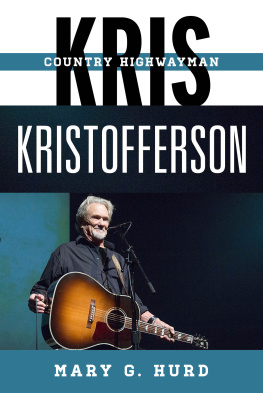


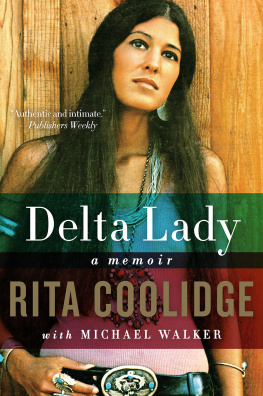
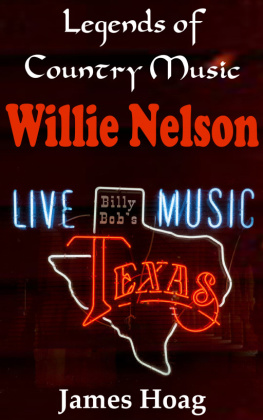
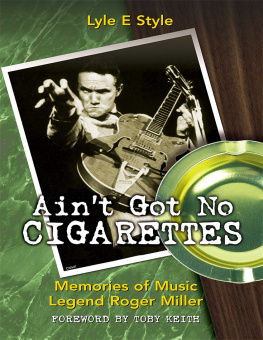
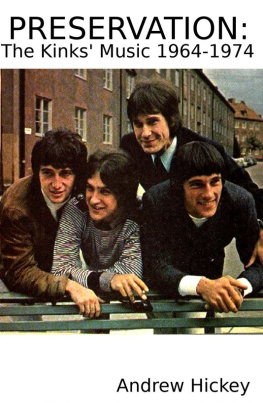
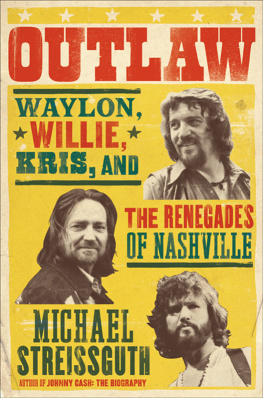
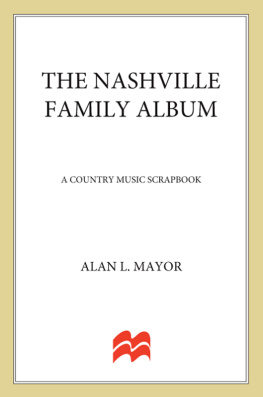
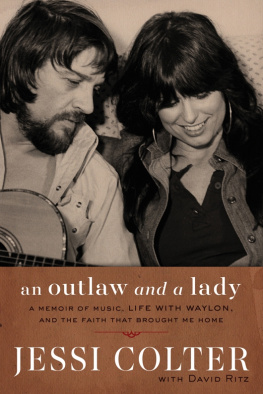
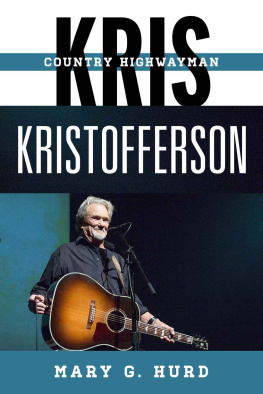
 TM The paper used in this publication meets the minimum requirements of American National Standard for Information Sciences Permanence of Paper for Printed Library Materials, ANSI/NISO Z39.48-1992.
TM The paper used in this publication meets the minimum requirements of American National Standard for Information Sciences Permanence of Paper for Printed Library Materials, ANSI/NISO Z39.48-1992.